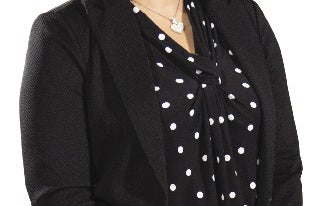My husband and I rally as parents to support the typical challenges and traversing of new territory that our son, like any kindergartener, must navigate. We support him through things many other parents and their children do not have to navigate: like being one of few students of color in his class.
Get Instant Access to This Article
Subscribe to Worcester Business Journal and get immediate access to all of our subscriber-only content and much more.
- Critical Central Massachusetts business news updated daily.
- Immediate access to all subscriber-only content on our website.
- Bi-weekly print or digital editions of our award-winning publication.
- Special bonus issues like the WBJ Book of Lists.
- Exclusive ticket prize draws for our in-person events.
Click here to purchase a paywall bypass link for this article.
Our son started kindergarten this year, his first go at elementary school. After the mass shooting in Uvalde in May, we think about him at school and worry, and our worry is not new.
Our worry stretches to a collective outpouring that comes from many other parents like us. My husband and I rally as parents to support the typical challenges and traversing of new territory that he, like any kindergartener, must navigate. Learning how to read, how to cooperate in a larger social collective (his classroom) and how to play similarly on the playground are a couple of the benchmarks for growth for the children his age.
We support him through things many other parents and their children do not have to navigate: like being one of few students of color in his class; like learning what it means to be proud of his multiculturalism and what it means to be Black at school, in class, on the playground, and in America. The lessons therein each environment are layered.
White culture is dominant in predominantly white schools, like most structures in America, where Eurocentric ideas and ways of being, celebrations, and everyday visuals are elevated. Everything else is considered different or other. Different from what? Different from what is considered a normal and mainstream culture. This othering fascinates and infuriates me. Does your organization other everything not Eurocentric?
Students of color (at any age), and employees of color (teenagers and adults) in predominantly white environments carry the burden of navigating this social sphere of being othered. They often must think more critically about their physical and psychological safety, even before their learning or job at hand. For those students and employees who excel in school and at work, imagine what it takes to meet that success, given the invisible knapsack they carry. This invisible knapsack is filled with the heavy burdens imposed on them, including white privilege, racial fatigue, microaggressions, racial biases, and racism. In 1988, Peggy McIntosh, published an essay, “White Privilege: Unpacking the Invisible Knapsack”. Peggy, a white female, former associate director of the Wellesley Centers for Women, and founder of the National SEED Project (Seeking Educational Equity and Diversity), describes in the essay what white privilege is. “I was taught to see racism only in individual acts of meanness, not in invisible systems conferring dominance on my group,” she wrote.
In 2015, when Black college students across the nation were protesting in large numbers against their college presidents and administrations for not enacting antiracist policies and practices, a Black student who I mentored at Worcester Polytechnic Institute said to me, “I’m tired. Why can’t I just focus on going to class and doing well in school? I care, and I want to stand up for change, too; but I also need to do my calculus homework.”
Given the tragic mass shootings of last month and many more before it, I spent time thinking about the lives lost and their families; and I circled back to what it means to be Black in America, where people hunt you and hope to livestream your murder. Hate crimes are at their highest in more than a decade. White nationalist language has been mainstreamed. These are constant fears, before a gun ever goes off. Will I ever live in this country when the presence of a Black man is not seen as a threat? Legislation is written and then erased by the gun lobby. Nowhere feels safe because of a social-emotional, dysfunctional human-to-human breakdown that leads to recklessness and the callous use of guns. Why does this happen in America? When will we make different choices, for the greater good? When will we care enough to understand that when one person dies, when one child dies, that a part of each of us dies? We are one in our humanity, one fractured whole that must be repaired and put back together after centuries of conquering and killing and enslaving and dividing. Division will be our demise; the human species cannot survive it, not in this country or anywhere else.
Bonnie J. Walker is the director of equity and inclusion at Worcester Academy. Contact her at bonnie.walker@worcesteracademy.org.

